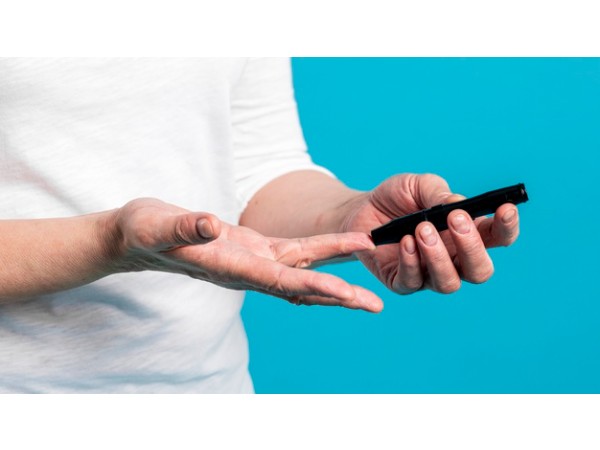
What Is Diabetes?
One of the most common health conditions to affect people, irrespective of age and gender, diabetes is of two types, type 1 and type 2. About 90 per cent of the cases diagnosed worldwide are type 2, where the body is unable to metabolise the glucose resulting in high blood sugar levels.
The prevalence of diabetes is rising with each day. According to the WHO report on diabetes, the global prevalence of the disease has hiked from 4.7 per cent (1980) to 8.5 per cent (2014). As per the statistics of 2016, an estimated 1.6 million deaths were directly caused by diabetes [1][2].
 Best Lifestyle Changes To Help Control Diabetes
Best Lifestyle Changes To Help Control Diabetes
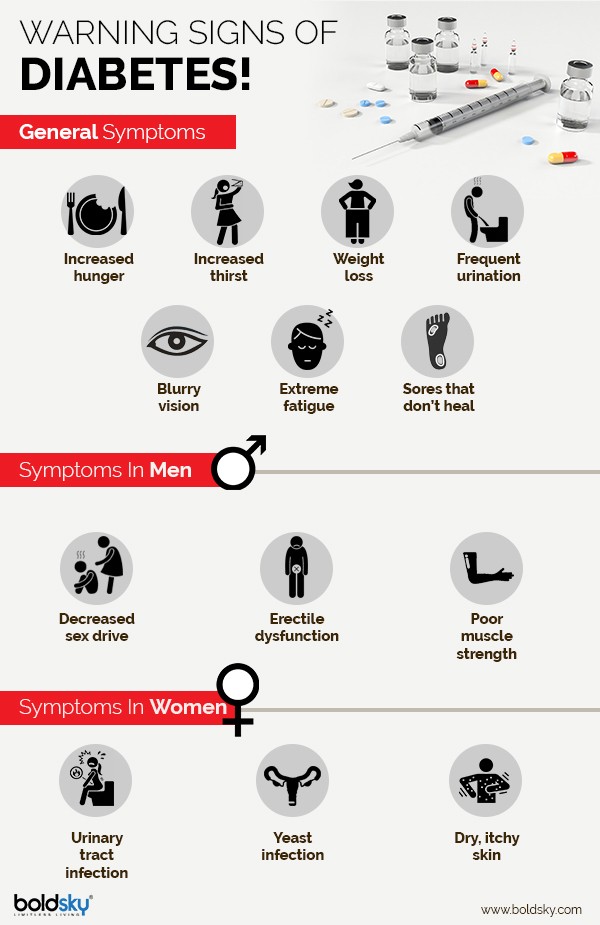
…
Diabetes is categorised mainly into four types and they are:
- Type 1 diabetes: It occurs when the pancreas stops producing insulin totally [3].
- Type 2 diabetes: Unlike type 1 diabetes, the pancreas secretes insulin in this case. However, for the most part, it is not enough to break glucose and enable it to be absorbed into our cells. Simultaneously, when the body ceases to respond and use the produced insulin, it triggers the symptoms of type 2 diabetes [4].
- Prediabetes: When the blood sugar level is higher than normal, but not high enough to be diagnosed as type 2 diabetes, it is called prediabetes [5].
- Gestational diabetes: Some expecting mothers tend to develop symptoms of diabetes during pregnancy. It is called gestational diabetes [6].
 How To Manage Juvenile Diabetes?
How To Manage Juvenile Diabetes?

What Is Type 2 Diabetes?
The more common type of diabetes, type 2 is increasingly found in individuals over the age of 40. Your risk of developing it increases as you age, especially after age 45 [7][8]. There are several factors responsible for type 2 diabetes.
The probable causes involve genetics and lifestyle factors [9]. People who are not physically active, run a higher risk to develop this kind of diabetes. Insulin resistance occurs when your muscle, liver and fat cells cannot use insulin effectively. Extra fat in your body, especially belly fat could lead to insulin resistance [10].
Symptoms of type 2 diabetes develop gradually and they are as follows [11]:
- Slow healing sore or cuts
- Increased thirst
- Recurrent infections like urinary tract infections
- Itchiness of the skin (especially around the vaginal or groin area)
- Decreased sex drive or erectile dysfunction (in men) [13]
- Fatigue
 How Does Alcohol Affect Your Sex Life?
How Does Alcohol Affect Your Sex Life?
Few factors contribute to the risk of growing type 2 diabetes symptoms, such as the following [14]:
- Obesity, age (45 or more)
- Family history of type 2 diabetes
- Little or no daily exercise
- Race
- A history of gestational diabetes
- Depression [15]
Exercise and a balanced diet can be helpful in controlling type 2 diabetes. However, when the lifestyle changes are not sufficient, doctors prescribe medication in order to keep the effects of diabetes at bay. Doctors generally work with patients to help them track the blood sugar level and determine the best insulin dosage for each individual [16]. The doctor can test your blood for signs of type 2 diabetes and may ask you to undergo tests such as fasting blood sugar test and oral glucose tolerance test (OGTT) [17].
 Diabetes Indian Diet: Vegetarian and Non-vegetarian Meal Plan
Diabetes Indian Diet: Vegetarian and Non-vegetarian Meal Plan
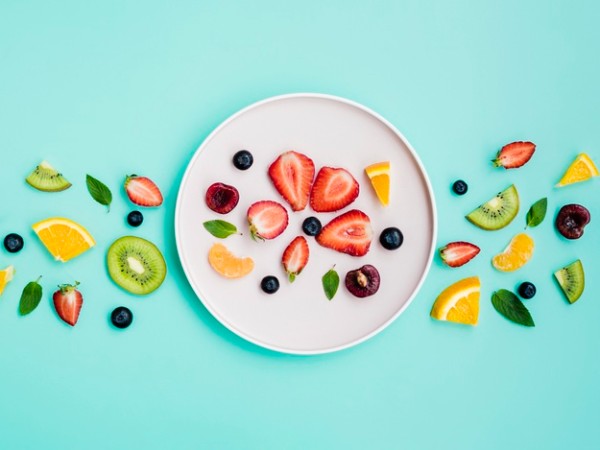
Can Eating Too Much Fruit Cause Type 2 Diabetes?
‘If you have diabetes, avoid fruits,’ is something that is blindly believed by so many. While there is some truth to the statement, not all is true and we will help you understand it. A balanced diet can do wonders to your body and health. Adding fruits to your diet can provide your body with the needed nutrition in the form of essential vitamins, carbohydrates and minerals. Diabetics, on the other hand, need to make a few careful choices while eating fruits [18][19].
 Expert Tips To Eat Right And Manage Diabetes
Expert Tips To Eat Right And Manage Diabetes
Each fruit differs in the number of antioxidants and nutrients and can benefit a person depending on their body requirements [20]. In the case of a person with diabetes, different fruits can cause a different change in the level of blood sugar in the body. To stay safe, it is mostly advised to avoid a few fruits that can surge the blood sugar level [21].

What is the glycemic index?
Glycemic index or GI measures how the food that contains carbohydrate raises the blood glucose levels. Individuals suffering from diabetes use GI as a guide for selecting the right choice of foods. Foods with a high glycemic index value tend to raise your blood sugar faster than foods with a lower GI value.
Low GI is 55 or less, 56 to 69 is medium GI and 70 or more is considered as high GI. An individual suffering from diabetes can have fruits with the low and medium glycemic index, though low GI is increasingly preferred [22].
So, let’s get to the question in hand.

Why do people say eating fruits can cause type 2 diabetes?
Of course, there will be reasons behind the claims and they are mentioned below.
- Type 2 diabetes can be made worse by high levels of carbohydrates
- Fruits are rich in sugar and high sugar levels can contribute to weight gain, which may lead to higher blood sugar levels and prediabetes [23].
- A diabetic person (type 2) has impaired insulin function which causes the glucose (simpler sugar from broken-down carbohydrates in foods) to accumulate in the bloodstream [24].

So, does eating fruits really cause type 2 diabetes?
A simple no and please read along to know why. Diabetes is a complex disease and just eating fruits would not completely break down the metabolism to the point the body cannot heal itself [25]. A normal healthy person will NOT develop type 2 diabetes just because they consume fruits on a daily basis.
However, it is never healthy to eat too much of any type of food, so keep in mind that portion control is key.
 15 Healthy Snacks For Diabetics
15 Healthy Snacks For Diabetics
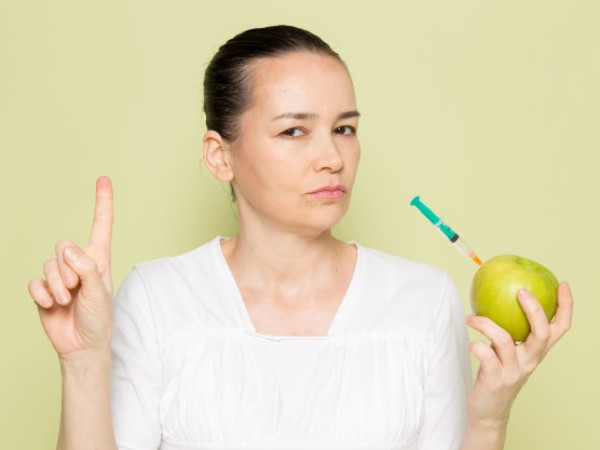
What about an individual with diabetes?
Only eating too much fruit should not be a reason for getting type 2 diabetes. It does not mean that the diabetic patient can consume all the fruits in unlimited quantities [26]. Most fruits have a low to medium glycemic index which would mean they do not raise blood sugars as quickly as other carbohydrate-containing foods. Therefore avoiding fruits that have a high glycemic index would help keep the blood sugars in check for a diabetic [27][28].
A person who has prediabetes has blood glucose levels that are high, but not high enough for a diagnosis of type 2 diabetes [29]. However, it may increase the risk of developing it so one must lower their blood glucose levels through diet and exercise.
 24 Foods That Help Manage Diabetes
24 Foods That Help Manage Diabetes
Eating the recommended amount of fruit should not increase a person’s risk for diabetes. However, consuming more than the recommended daily allowance of fruit may add too much sugar to the diet [30].
 11 Herbs That Help Manage Diabetes
11 Herbs That Help Manage Diabetes

Best Fruits For Diabetics Patients
If consumed in moderate amounts and under the supervision of your doctors, these fruits can be helpful for controlling diabetes or high blood sugar levels.
READ RELATED: US dementia rates DROPPED 4% since 2000 ‘thanks to health conscious generation’
- Grapefruit: Grapefruit is rich in vitamin C, has a glycemic index of 25 and has a high amount of soluble fibre. Eat about half a grapefruit daily to keep your blood sugar levels in control [31].
- Strawberry: These berries have a glycemic index of 41 and are low in carbohydrates. Eating about ¾ cup of strawberries daily can be beneficial for diabetics [32].
- Orange: Take an orange daily to keep your diabetes in check. It has a glycemic index of 44 [33].
- Cherry: With a low glycemic index of 22, rich in vitamin C, antioxidants, magnesium and fibre, cherries are extremely beneficial for diabetes. Consuming 1 cup of cherries in a day can be quite helpful in keeping diabetes under control [34].
- Apple: They have a low glycemic index of 38 and an apple a day can help you keep diabetes under control [35].
- Pear: Pears are considered to be extremely beneficial for diabetes because they help to enhance insulin sensitivity and have a low glycemic level of 38 [36].
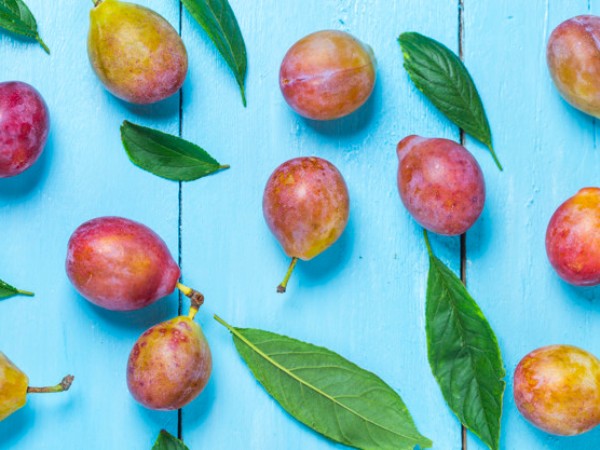
…
- Plum: As many diabetes patients suffer from constipation, it helps improve the digestive system and cures constipation. It has a very low glycemic index of 24 [37].
- Avocado: Avocado also helps lower the triglyceride and bad cholesterol levels in the body. It has a very low glycemic index of 15 [38].
- Nectarine: Nectarine has a low glycemic index of 30, which helps reduce the chances of type-2 diabetes [39].
- Peach: The vitamins present in peach make it really good for diabetes patients. It ha a low glycemic index of 28 [40].
- Pomegranate: Consuming this fruit is beneficial for diabetes patients as it helps to improve the blood sugar levels in the body and has a low glycemic index of 18 [41].
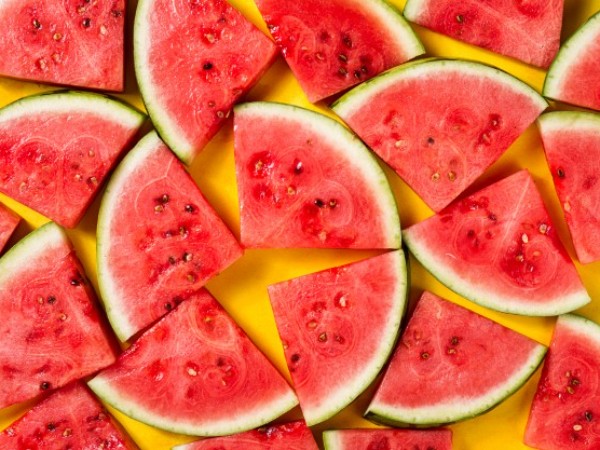
Fruits To Avoid For Diabetes
Here is a list of fruits to be avoided if you have diabetes, as they have high GI values [42]:
- Mango
- Sapota (chikoo)
- Dried apricot
- Dried prunes
- Pineapple
- Custard apple
- Watermelon
- Papaya

Fruit Guidelines For People With Diabetes
The recommended amount of fruit depends on a person’s age, sex, and exercise level [43]. For people who do moderate exercises daily, here is the recommended amount of fruit per day [44]:
- Children (2-3 y): 1 cup
- Children (4-8 y): 1-1.5 cups
- Children (9-13 y): 1.5 cups
- Girls (14-18 y): 1.5 cups
- Boys (14-18 y): 2 cups
- Women (19-30 y): 2 cups
- Women (over 30 y): 1.5 cups
- Men (over 19 y): 2 cups
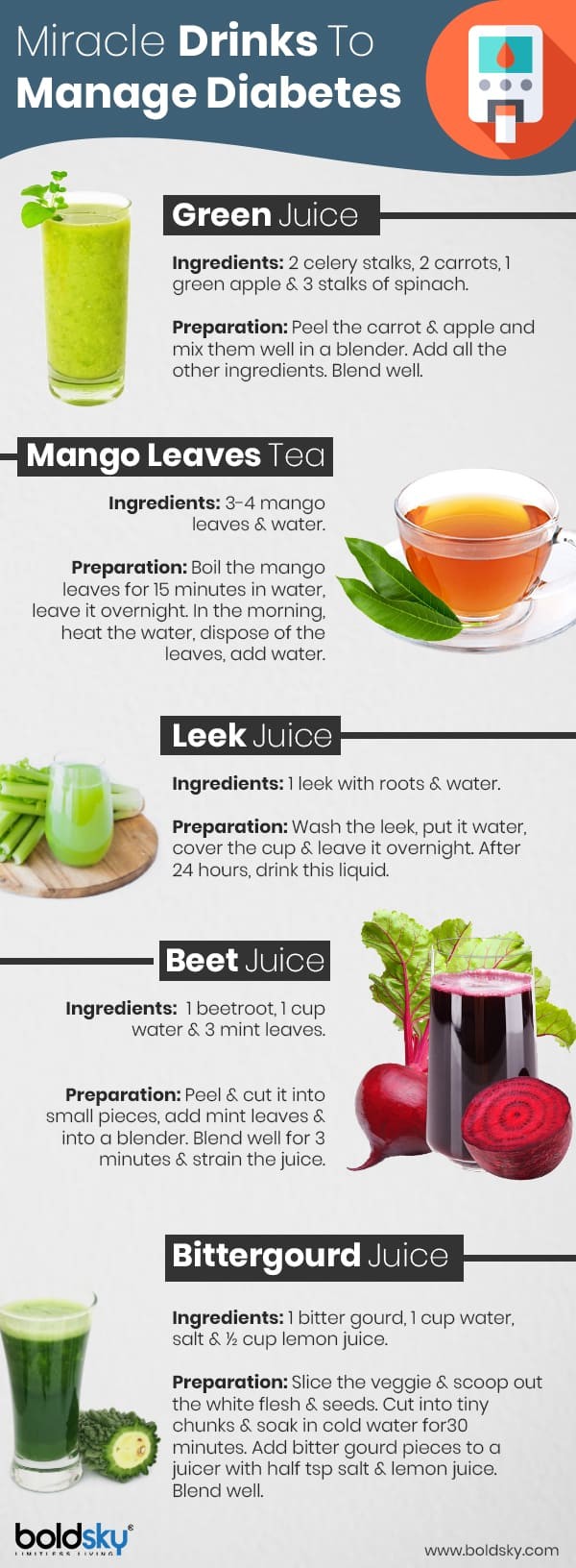
What About Fruit Juices For Diabetics?
Studies point out that fruit juice is particularly high in sugar and drinking no more than 1 cup of fruit juice per day can help keep sugar intake within healthful limits [45].
 Why Is Your Body Craving Orange Juice?
Why Is Your Body Craving Orange Juice?
- When a food is processed, its GI increases – so fruit juice has a higher score than a whole piece of fruit.
- Ripe fruit also has a higher GI score than unripe fruit.
- A diabetic should also avoid fruit smoothies as they are already broken down (low fibre) and have extra calories and carbohydrate.
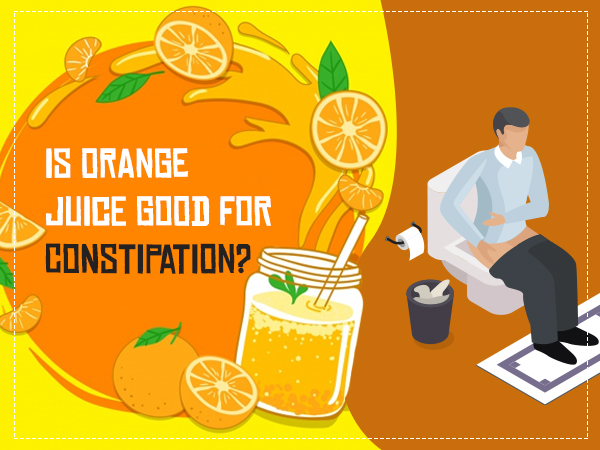 Is Orange Juice Good For Constipation? Everything You Need To Know
Is Orange Juice Good For Constipation? Everything You Need To Know
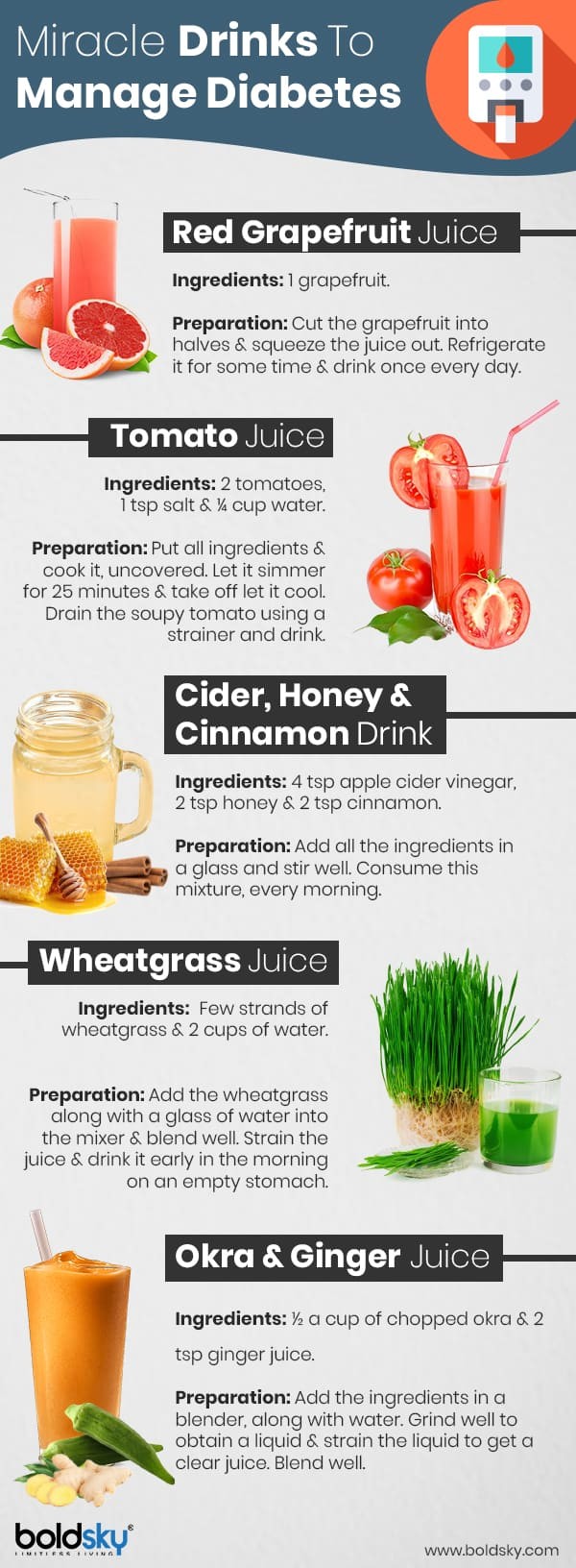
On A Final Note…
A person will not develop type 2 diabetes solely from eating too much fruit. Among the fruits to avoid, diabetics should consider the GI index value of the fruit before adding it to their meal. Generally, GI should be equal to 55 or lower to be safe for consumption for a person with diabetes. Fruits such as strawberries, pears and apples are some of the examples that are low in carbohydrates and can be included in a diabetic’s diet.
If you have diabetes, it is important that you consult your doctor and dietitian to create an eating plan that works for you. Use healthy foods, portion control and scheduling to manage your blood glucose level and make sure you stay true to the diet.

Frequently Asked Questions
Q. Are fruits harmful for diabetes?
A. Not all fruits. Whole, fresh fruit is packed full of fibre, vitamins, minerals, and antioxidants, making it a nutrient-dense food that can be part of a healthy diabetes treatment plan.
Q. Are bananas OK for diabetics?
A. Bananas are a safe and nutritious fruit for people with diabetes to eat in moderation as part of a balanced, individualised diet plan.
Q. Can diabetics eat rice?
A. Yes, but you should avoid eating it in large portions or too frequently.
Q. Can fruits cause diabetes?
A. Generally, eating fruit as part of a healthful diet should not increase the risk of diabetes. However, consuming more than the recommended daily allowance of fruit may add too much sugar to the diet.
Q. Is Basmati rice good for a diabetic patient?
A. Wholegrain Basmati rice can be added to the diets of people who suffer from type 2 diabetes.
Q. Can diabetics eat potatoes?
A. Although potatoes are a starchy vegetable, a person with diabetes can eat potatoes but the intake should be monitored.
Q. Which fruits are bad for diabetics?
A. People with diabetes should avoid fruit juices or canned fruits with added sugar. Fruit blends like smoothies also have high sugar content and are more rapidly absorbed leading to higher spikes in blood sugar. Avoid mango, sapota, papaya etc.
Q. Can Type 2 diabetics eat fruit?
A. Yes. Fruit is not off-limits if you have type 2 diabetes but consume only according to the recommended amount.
Q. Can diabetic eat oranges?
A. Yes.
Q. What is the best fruit for type 2 diabetes?
A. Apple, cherry, peach, pear etc.
Source: boldsky blog



 Benefits Of Mediterranean Diet For Diabetes
Benefits Of Mediterranean Diet For Diabetes 15 Best Fruits For Diabetes Patients
15 Best Fruits For Diabetes Patients Fruits To Avoid If You Have Diabetes
Fruits To Avoid If You Have Diabetes





